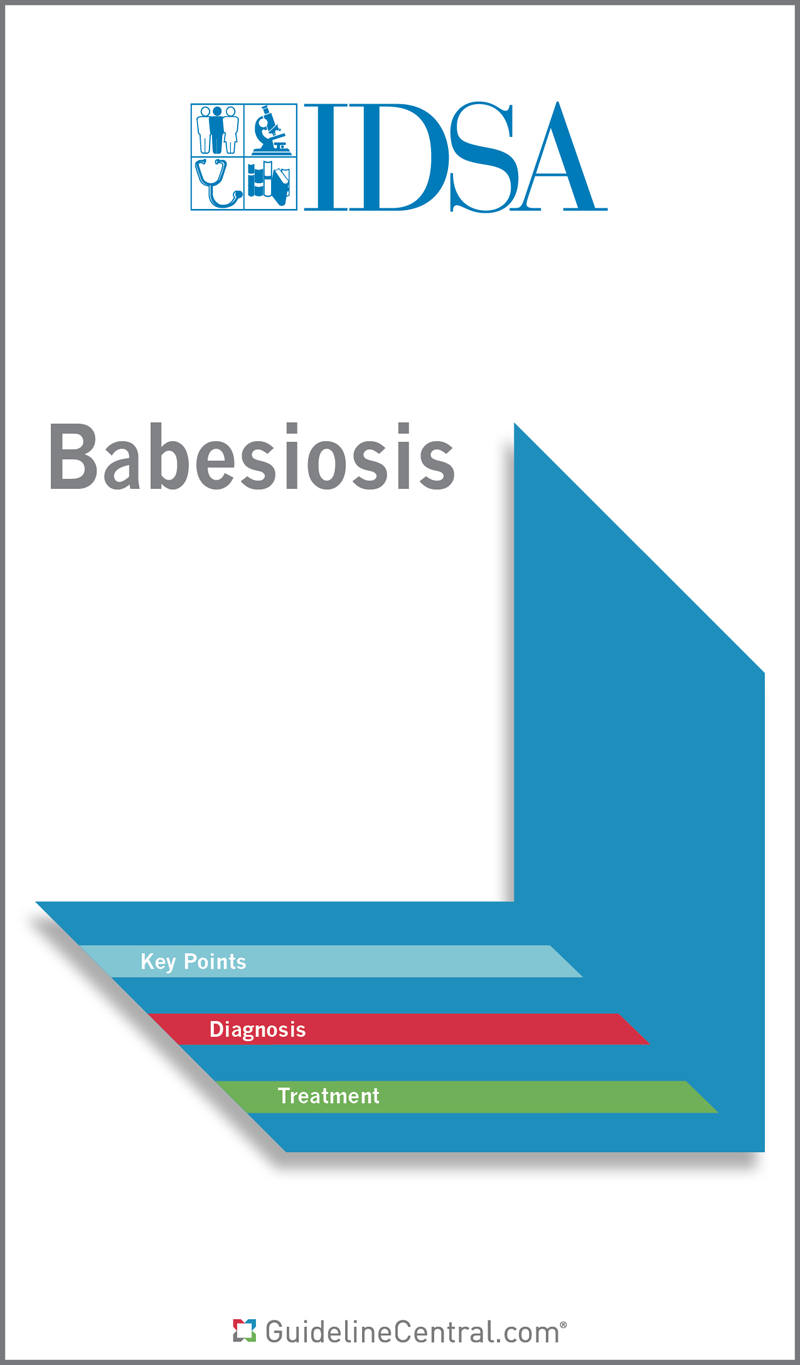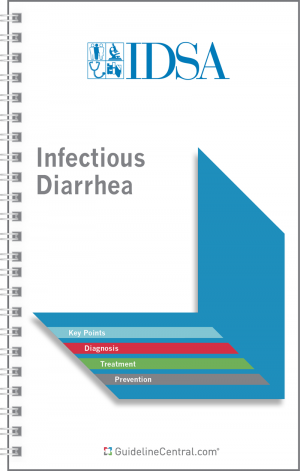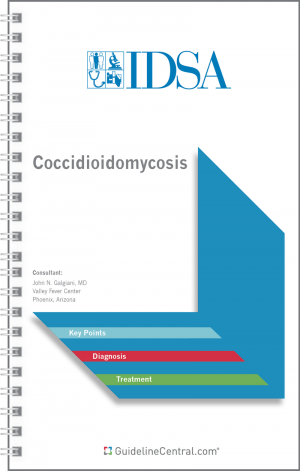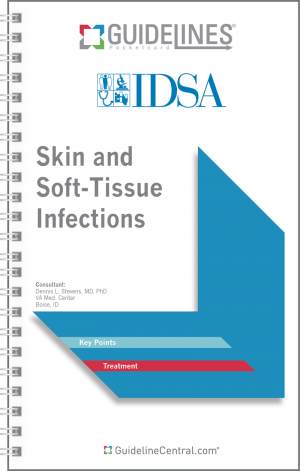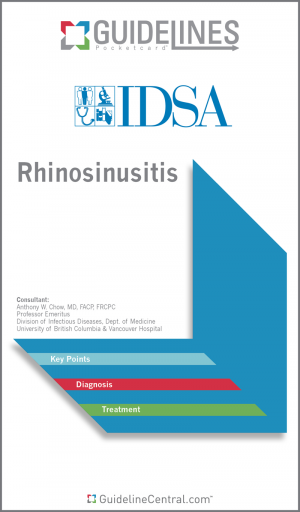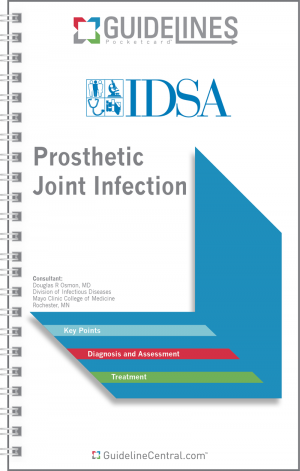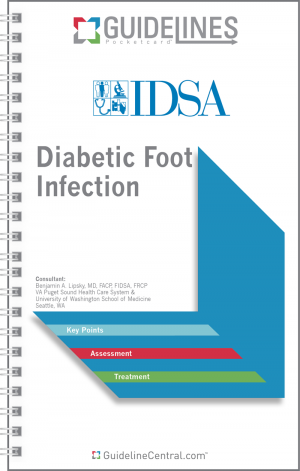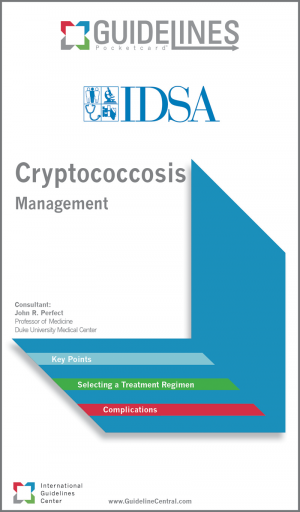Guideline on Diagnosis and Management of Babesiosis
- 10 pages
- Multifold
- 80# Aqueous Coating
- 4.25" x 7.25"
- Ships in 5 – 10 business days
- Key Points
- Diagnostic Recommendations
- Treatment Recommendations
- Figures
- Worldwide Distribution of Human Babesiosis and Tick Vectors
- Human Babesiosis Occurs Within Lyme Disease Endemic Areas in the United States
- Sharp Rise in the Incidence of Babesiosis in the United States in the Past Two Decades
- Giemsa-stained Thin Blood Films Showing Babesia microti Parasites
- Tables
- Treatment Regimens for Babesiosis Patients
- Antimicrobials Used for Refractory Babesia Infections with Limited Evidence of Efficacy
- For purchases under 100 in quantity, we suggest placing the order directly through the website.
- We offer group/institutional licenses for multi-user accounts (discount amount varies depending on the number of users).
- We are proud to offer special discounts to medical schools, training programs, students and more.
- We offer bulk purchase discounts based on number of copies and number of titles.
Contact Us for more details
Description
This resource is for informational purposes only, intended as a quick-reference tool based on the cited source guideline(s), and should not be used as a substitute for the independent professional judgment of healthcare providers. Practice guidelines are unable to account for every individual variation among patients or take the place of clinician judgment, and the ultimate decision concerning the propriety of any course of conduct must be made by healthcare providers after consideration of each individual patient situation. Guideline Central does not endorse any specific guideline(s) or guideline recommendations and has not independently verified the accuracy hereof. Any use of this resource or any other Guideline Central resources is strictly voluntary.
You can also find this product included in this bundle!

- Acute Hematogenous Osteomyelitis
- Antibiotic Stewardship
- Antimicrobial Prophylaxis for Adult Patients With Cancer-Related Immunosuppression
- Antimicrobial Prophylaxis in Surgery
- Aspergillosis
- Asymptomatic Bacteriuria Management
- Candida
- Catheter-Associated Bacteriuria
- Chronic Kidney Disease in HIV-Infected Patients
- Chronic Pain in HIV
- Clostridium difficile
- Coccidioidomycosis
- Complicated Intra-abdominal Infection in Adults
- Cryptococcosis Management
- Diabetic Foot Infections
- Diagnosis and Treatment of Adults with Community-Acquired Pneumonia
- Drug-Susceptible Tuberculosis
- Fever and Neutropenia in Cancer Patients
- Guideline on Diagnosis and Management of Babesiosis
- Hospital-acquired and Ventilator-Associated Pneumonia
- Infectious Diarrhea
- Influenza Update for the 2020 - 2021 Flu Season
- Leishmaniasis
- Management of Outpatient Parenteral Antimicrobial Therapy
- Methicillin-Resistant Staphylococcus aureus (MRSA)
- Native Vertebral Osteomyelitis in Adults
- Neurocysticercosis
- Outpatient Management of Fever and Neutropenia in Adults Treated for Malignancy
- Pediatric Community-Acquired Pneumonia
- Prevention of Ventilator-Associated Pneumonia, Ventilator-Associated Events, and Nonventilator Hospital-Acquired Pneumonia in Acute Care Hospitals
- Prevention, Diagnosis and Treatment of Lyme Disease
- Primary Care Guidance for Persons with HIV
- Prosthetic Joint Infection
- Rhinosinusitis
- Skin and Soft Tissue Infections
- Strategies to Prevent Catheter-Associated Urinary Tract Infections in Acute-Care Hospitals
- Strategies to Prevent Central Line-Associated Bloodstream Infections in Acute-Care Hospitals
- Strategies to Prevent Clostridioides difficile Infections in Acute-Care Hospitals
- Strategies to Prevent Healthcare-Associated Infections through Hand Hygiene
- Strategies to Prevent Methicillin-Resistant Staphylococcus aureus in Acute-Care Hospitals
- Strategies to Prevent Surgical Site Infections in Acute Care Hospitals
- Streptococcal Pharyngitis Diagnosis and Management
- Treatment of Acute Uncomplicated Cystitis and Pyelonephritis in Women
- Treatment of Drug-Resistant Tuberculosis
- Treatment of Nontuberculous Mycobacterial Pulmonary Disease
- Tuberculosis Diagnosis Adults and Children
- Vaccination of the Immunocompromised Host
- Ventriculitis and Meningitis Healthcare-Associated
Related Guidelines
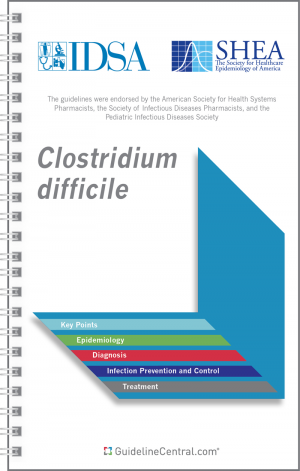
Clostridium difficile

Strategies to Prevent Surgical Site Infections in Acute Care Hospitals

Strategies to Prevent Catheter-Associated Urinary Tract Infections in Acute-Care Hospitals

Strategies to Prevent Clostridioides difficile Infections in Acute-Care Hospitals

Strategies to Prevent Healthcare-Associated Infections through Hand Hygiene

Prevention of Ventilator-Associated Pneumonia, Ventilator-Associated Events, and Nonventilator Hospital-Acquired Pneumonia in Acute Care Hospitals

Strategies to Prevent Methicillin-Resistant Staphylococcus aureus in Acute-Care Hospitals

Strategies to Prevent Central Line-Associated Bloodstream Infections in Acute-Care Hospitals

Acute Hematogenous Osteomyelitis

Prevention, Diagnosis and Treatment of Lyme Disease

Primary Care Guidance for Persons with HIV
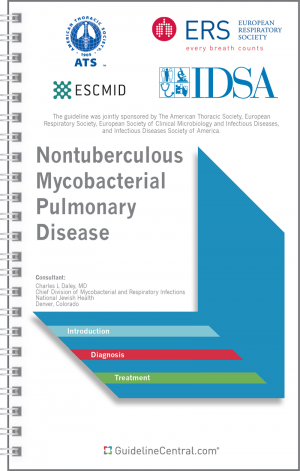
Treatment of Nontuberculous Mycobacterial Pulmonary Disease

Treatment of Drug-Resistant Tuberculosis
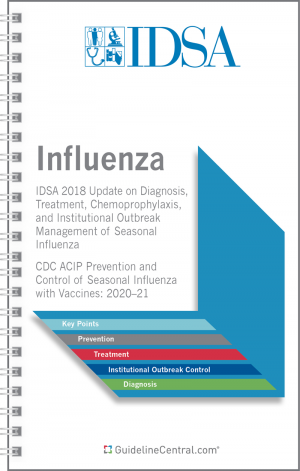
Influenza Update for the 2020 - 2021 Flu Season

Asymptomatic Bacteriuria Management

Management of Outpatient Parenteral Antimicrobial Therapy

Antimicrobial Prophylaxis for Adult Patients With Cancer-Related Immunosuppression
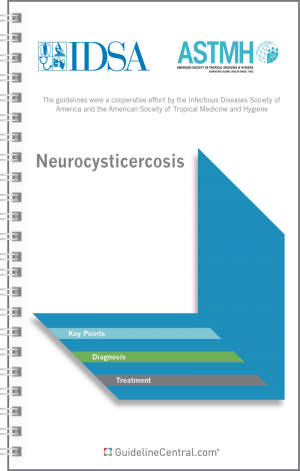
Neurocysticercosis

Outpatient Management of Fever and Neutropenia in Adults Treated for Malignancy
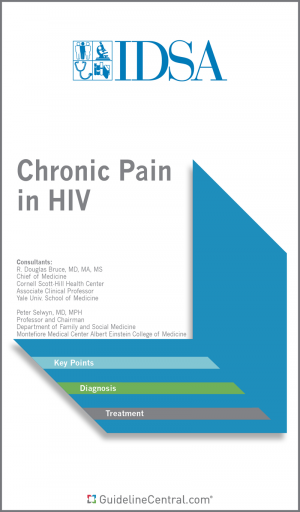
Chronic Pain in HIV

Ventriculitis and Meningitis Healthcare-Associated
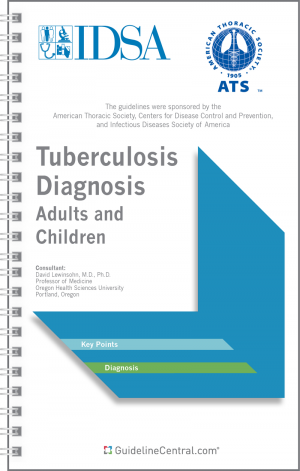
Tuberculosis Diagnosis Adults and Children
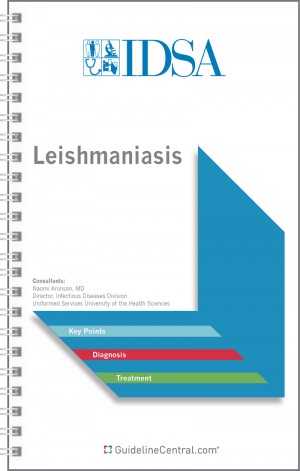
Leishmaniasis
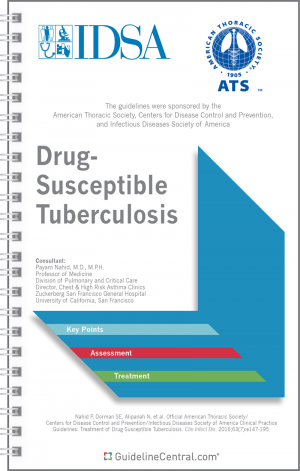
Drug-Susceptible Tuberculosis

Hospital-acquired and Ventilator-Associated Pneumonia

Antibiotic Stewardship
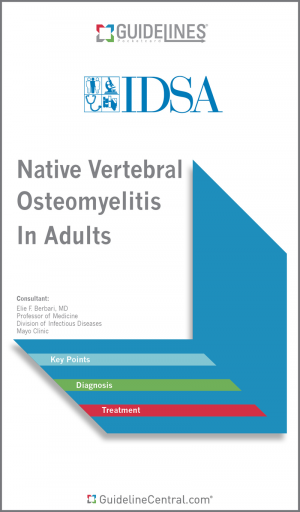
Native Vertebral Osteomyelitis in Adults

Vaccination of the Immunocompromised Host
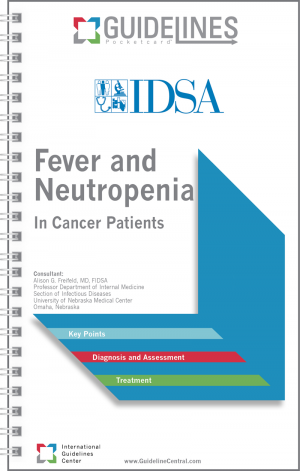
Fever and Neutropenia in Cancer Patients
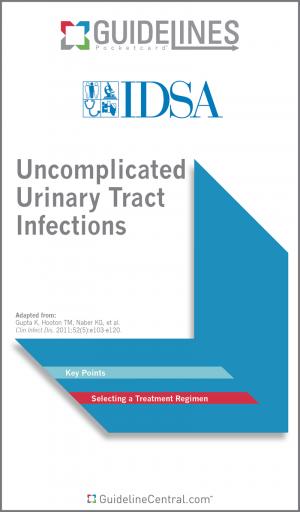
Treatment of Acute Uncomplicated Cystitis and Pyelonephritis in Women

Pediatric Community-Acquired Pneumonia
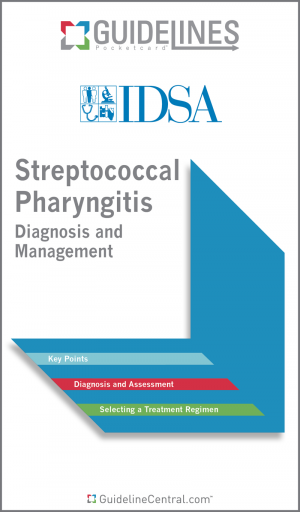
Streptococcal Pharyngitis Diagnosis and Management
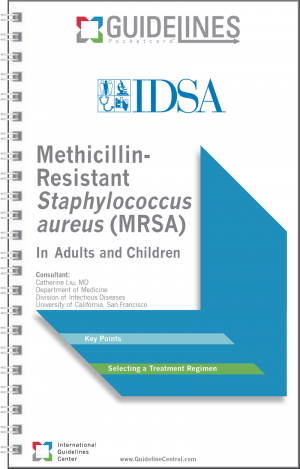
Methicillin-Resistant Staphylococcus aureus (MRSA)
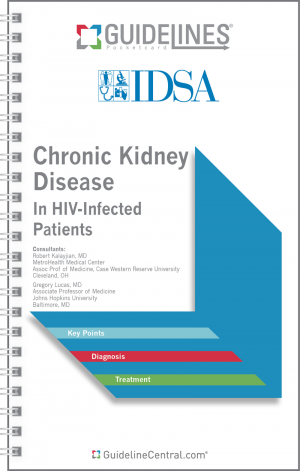
Chronic Kidney Disease in HIV-Infected Patients
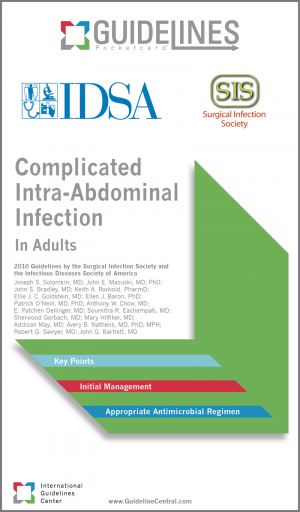
Complicated Intra-abdominal Infection in Adults

Antimicrobial Prophylaxis in Surgery

